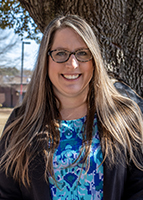EMS programs are designed to provide initial, continuing education, and re-credential training in the Emergency Medical Services field. Initial courses are provided to prepare individuals to earn their EMS credentials. Continuing education courses are offered each semester on the college campus or at area agencies enabling current EMR, EMT, AEMT, or Paramedic credential to maintain their State of North Carolina or National Registry Credentials.
Complete a Course Evaluation
Wilson Community College offers monthly Continuing Education Training at various locations in Wilson County. All training materials will be provided by the instructor at registration. All classes are open to those needing to obtain continuing education for their EMS credential. NOTE: Students must bring a letter of affiliation from their department chief to have fee-waived.
Toisnot FD – 1st Tuesday of each month
East Nash FD – 3rd Monday of each month
Crossroads FD – 4rd Monday of each month
Rock Ridge FD – 4th Monday of each month
Bakertown FD – 4th Tuesday of each month
Wilson County Rescue – 4th Tuesday of each month
Stantonsburg FD – 4th Tuesday of each month
Wilson County EMS – Dates/Times TBA
Wilson Fire/Rescue – Dates/Times TBA
Time is 7:00 p.m. – 10:00 p.m.
Registration is on site.
Registration Fee is $70.00 per class unless fee waived.
All EMS courses require proof of a high school diploma, GED, or college transcript and that a copy of the student’s high school diploma or GED be kept on file. Wilson Community College recognizes high school diplomas from regionally accredited schools, private high schools or home schools registered with the North Carolina Department of Public Instruction. Wilson Community College will also accept high school diplomas from correspondence schools that are accredited by the Distance Education and Training Council (DETC) and/or a regional accrediting agency, such as the Southern Association of Colleges and Schools. EMS applications for all initial courses listing all pre-requisites and co-requisites are available in the Continuing Education office. Only completed applications will be accepted for entrance into any initial training program.
Student Fees
Fees listed include registration, student technology ($5.00) and student security ($15.00). There are NO fee waivers for student technology and student security fees. *Preregistration required three days prior to class for all initial Emergency Medical Services courses.
View and Register for a CPR/First Aid Course
The Basic Life Support (BLS) for Healthcare Providers Classroom Course is designed to provide a wide variety of healthcare professionals the ability to recognize several life-threatening emergencies, provide CPR, use an AED, and relieve choking in a safe, timely and effective manner.
Students are required to obtain CPR as a pre-requisite for many areas of study, such as the Nursing and Nurse Aide programs, Emergency Medical Services, and Medical Technology.
AHA Training Site
Wilson Community College is a training site for the American Heart Association and course completion cards to students in BLS Healthcare Provider, Heart Saver CPR/AED (Cardiopulmonary Resuscitation/Automated External Defibrillator), PALS (Pediatric Advanced Life Support), ACLS (Advanced Cardiovascular Life Support) and Heart Saver CPR/AED/First Aid.
The student is RESPONSIBLE to have their book at the start of class. Make sure you have purchased the correct AHA book for your program.
Emergency Medical Technician (EMT)
| Year | Pass Rate | Retention Rate | Job Placement |
| 2022 | 100% | 83% | 100% |
| 2023 | 85% | 85% | 100% |
Advanced Emergency Medical Technician (AEMT)
| 2022 | N/A | N/A | N/A |
| 2023 | N/A | N/A | N/A |
Paramedic
| 2022 | N/A | N/A | N/A |
| 2023 | N/A | N/A | N/A |
*Less than 5 tested in that year, not reportable.
1st Attempt pass rate ONLY.
Graduates of these programs and certificates may be eligible to sit for industry-recognized certifications.
Out-of-state students seeking to enroll in a program or course leading to professional licensure or certification should contact Dr. Miranda Yelverton, Dean of Health Sciences to discuss enrollment and professional licensure options available. Students may view the Professional Licensure information page to learn more.

Director of EMS
Department: Health Sciences
Phone: (252) 246-1296
Email: twillis@wilsoncc.edu
Office: B105f

Dean of Health Sciences
Department: Health Sciences Vice President for Academic Affairs
Phone: (252) 246-1333
Email: myelverton@wilsoncc.edu
Office: G222a

Email: ems@wilsoncc.edu
